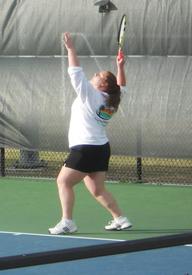Shakiness during and after workout?

kellegg22
Posts: 53 Member
I just did a cardio workout and my legs and hands were shaking during it. Anyone know what the cause of this could be?
0
Replies
-
I don't know, but this happens to me often as well.0
-
Me too0
-
How long was it from when you ate and when you started your workout? What do you drink after your workout? Do you drink afterglow?0
-
Do you get a good serving of fruit or fat before you workout?0
-
Hows your water intake? are taking any "diet" or "workout" supplements. Whats your food intake like daily?0
-
Same its usually muscle fatigue... or dehydration0
-
I know when I weight train I get shaky in my hand and arms during and after, but I'm pretty sure its adrenaline.0
-
Shaking and feeling weak during exercise can be disconcerting, but it is often just a sign that you are working beyond your limits. Lack of nutrition and dehydration can also cause shaking and trembling because your muscles need both to function properly. In some cases, medication or an underlying medical disorder could be causing the problem. If the shaking and weakness continues for some time after exercise, or if you experience it when not exercising, consult a doctor.
Muscle Fatigue
When you exercise, your muscles contract in groups of cells, which are controlled by a motor nerve that connects the spinal cord to the muscle cells. The group of cells and the motor nerve that control it are a motor unit. Strenuous exercise causes some of the motor units to falter and stop working. Because different motor units overlap to create synchronous movement, when one or more units stop working, movement becomes jerky and you start to shake and tremble. The muscles become weaker and unable to move with ease.
Hypoglycemia
Your body gets most of its fuel from glucose -- also referred to as blood sugar -- which comes primarily from food. If you are exercising in the morning before eating breakfast, or are skipping meals during the day and then exercising, your blood sugar may be low -- a condition known as hypoglycemia. Symptoms of hypoglycemia include shaking, trembling, weakness, confusion and dizziness or a light-headed feeling. Other symptoms can include hunger, nervousness, sweating, fatigue and sleepiness.
Dehydration
While not as much of a problem as overexertion or hypoglycemia, lacking sufficient fluids in your body -- dehydration -- can cause fatigue and weakness, leading to shaking and trembling when exercising. In addition to weakness and fatigue, mild dehydration can present with symptoms of dark-colored urine, thirst, loss of appetite and skin flushing. Sufficient hydration keeps the blood flow to the muscles constant and provides them with sufficient oxygen to function properly.
Prevention
To prevent hypoglycemia, eat a smaller meal two to four hours before exercising or a small snack no less than 30 minutes before exercising. To avoid dehydration, the Mayo Clinic recommends starting to hydrate the day before exercise and to drink 1 to 3 cups of water before exercising. Drink plenty of water during and after exercise. Drink an electrolyte-enhanced water or sports drink after exercising, which can help you absorb fluids more efficiently. Avoid forcing yourself to drink too much, however, because over-hydration can cause its own problems. Pace yourself to avoid overexertion and stop working out or exercising if you show signs of muscle weakness or shaking. Avoid caffeine, alcohol and tobacco before exercising because they can cause similar symptoms.
Treatment
Consume a small sugary or carbohydrate-rich snack such as crackers and peanut butter, a banana or some orange juice if you suspect hypoglycemia. Drink several cups of water if you feel thirsty or suspect dehydration. If the shaking and weakness does not go away after treating it with water and food, adjusting your exercise regimen, or if you experience the symptoms while not exercising, consult a doctor. Discuss any medications you are taking, especially if you are diabetic. Your doctor may also run tests to check for any medical disorders that could be causing your symptoms.0 -
I had chicken about an hour before the workout. I usually eat every three to four hours. Water intake today was about 9 cups.0
-
I get that way myself. It's usually because I've overworked those particular muscles and I really need water ASAP.0
-
Shaking and feeling weak during exercise can be disconcerting, but it is often just a sign that you are working beyond your limits. Lack of nutrition and dehydration can also cause shaking and trembling because your muscles need both to function properly. In some cases, medication or an underlying medical disorder could be causing the problem. If the shaking and weakness continues for some time after exercise, or if you experience it when not exercising, consult a doctor.
Muscle Fatigue....etc
thank you, that is great info! (i didn't want to put the whole thing again, just wanted to give ya credit for a great post!)0 -
I get this when my blood sugar gets too low. Try to eat a banana or some other sugar-rich fruit afterward to help alleviate it. I would also suggest maybe eating a piece of fruit before your workout to prevent it.0
This discussion has been closed.
Categories
- All Categories
- 1.4M Health, Wellness and Goals
- 398.1K Introduce Yourself
- 44.7K Getting Started
- 261K Health and Weight Loss
- 176.4K Food and Nutrition
- 47.7K Recipes
- 233K Fitness and Exercise
- 462 Sleep, Mindfulness and Overall Wellness
- 6.5K Goal: Maintaining Weight
- 8.7K Goal: Gaining Weight and Body Building
- 153.5K Motivation and Support
- 8.4K Challenges
- 1.4K Debate Club
- 96.5K Chit-Chat
- 2.6K Fun and Games
- 4.8K MyFitnessPal Information
- 12 News and Announcements
- 21 MyFitnessPal Academy
- 1.5K Feature Suggestions and Ideas
- 3.2K MyFitnessPal Tech Support Questions







